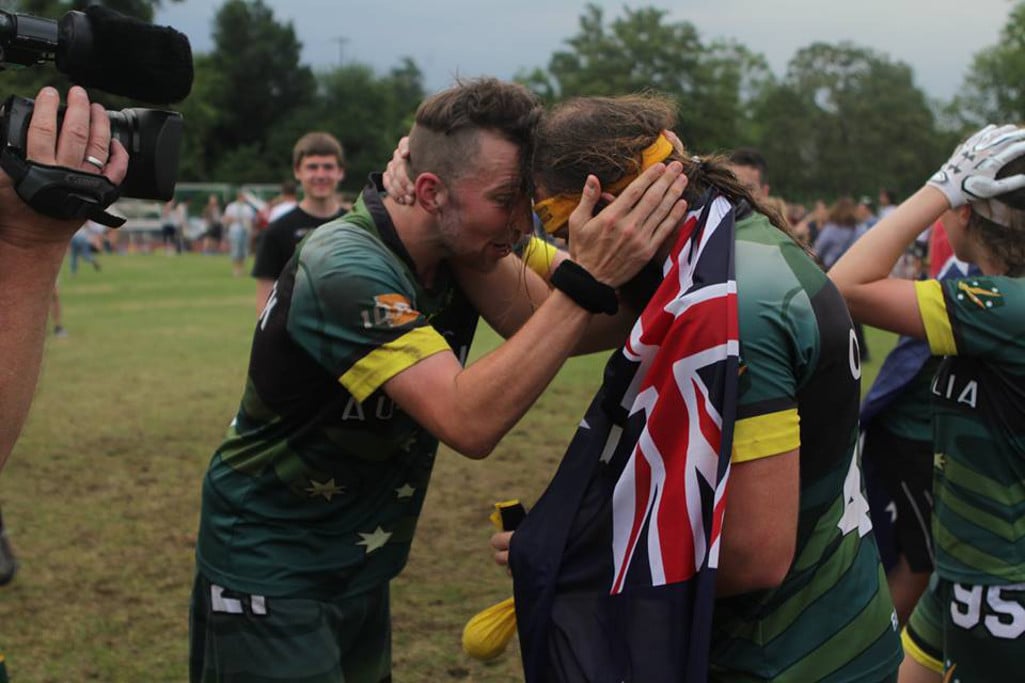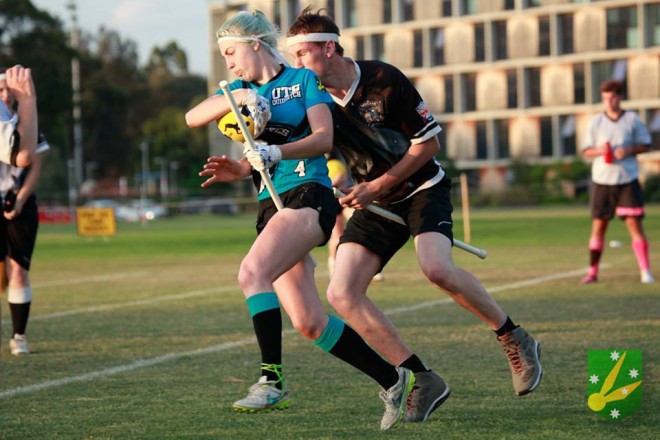Australia Won The Quidditch World Cup! Here’s A Primer On Your New Favourite Sport
100 points to The Dropbears!

Australians pride ourselves on being good at sports and it turns out this competitive spirit extends all the way to sports which were, until only a decade ago, fictional. Overnight, Australia’s national quidditch team — The Dropbears — took out victory at the World Cup in Germany.
This year’s Quidditch World Cup was the largest ever tournament for the bludgeoning sport (pun absolutely intended), and in a nail-biting match against the US, Australia scraped home to victory. The US have dominated the game since they invented it and this is the first time they’ve ever lost the world championships. It’s a big deal — and it’s a huge, huge win for local quidditch.
–
Wait… Quidditch?
Inspired by the fictional sport in the Harry Potter books, quidditch has rocketed to popularity in recent years. It loosely follows the same structure as the fictional version: chasers try to get a ball (quaffle) past the keeper and into one of three hoops, while avoiding interference from the beaters. Unlike the fictional version, the golden snitch is a person, not a ball, who needs to be caught. Each goal is worth 10 points while the snitch catch is worth 30 (not the frankly impractical 150 of JK Rowling’s version).
Since its inception in 2005, quidditch has undergone many rule changes and revisions. It was a long process converting a fictional game (which relied heavily on magic) into the legitimate, rigorous and physically demanding sport it is today.
The World Cup began as a US-based competition, largely comprised of American college teams. Canada, Australia and France were the first international teams to compete but the US-centric nature of the competition continued to cause conflict. Since 2012, a bi-annual world champion tournament has been held (separate to the American tournament) and in 2016 this regained the title of Quidditch World Cup. This year, 21 national teams travelled to Germany to compete, including Turkey, Mexico, the Netherlands, Ireland and Slavakia. It was the biggest tournament in quidditch history.
–
So Australia’s Pretty Good At It?
Australia was one of the first countries to have a strong quidditch community and has long been a contender in the international competition. The team came third in 2012 and made the final in 2014 (before being frankly slaughtered by the US).
This year Australia’s team (The Dropbears) was the strongest ever. But they still needed to win every one of their games yesterday to gain a place in the grand final against the US. They scored decisive victories against Germany (150*-20) and France (110*-60). The semi-final against Canada was a much lower scoring game, with Australia winning by only 50 points (90*-40). But with that, Australia were through to the final.
The final was nail-bitingly close. Goals were shot backwards and forwards. Lead by captain James Mortensen, Australia fought valiantly, but the US edged ahead. In the final moments, with the US team up by one goal, Dameon Osborn (Australia’s seeker) caught the snitch, taking Australia into the lead and ending the game. The catch was contested (there are many rules about what constitutes a clean catch) leading to an anxious few minutes for the team. Ultimately though, the referee deemed the catch legal. The Dropbears won, with 150 points to the US team’s 130.
This is the first time in the tournament’s history that the World Cup was not won by the Americans. It’s a huge victory for Australia. Nicholas Hirst, president of Quidditch Australia, stressed how hard the team have worked (under the guidance of coach, Gen Gibson). “The team came with one mission,” he says. “To show the world the competitive side of Australian quidditch and to take on the undefeated champions, America. The global quidditch community has been incredible supportive of us. The community is what makes this sport truly unique.”
Congratulations to the whole Australian team and support crew. You can (and absolutely should) watch replays of the matches from the World Cup online now.
–
If you’d like to read more about the sport and where you can play it, read more at Quidditch Australia.
–
Alexandra Neill is a writer and critic. She blogs at alexandraneill.com and tweets at @alexbneill.
